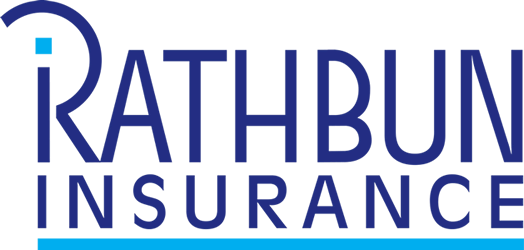
Business owners are noticing premium changes during policy renewals. What might not be as apparent are:
- Changes to policy requirements to retain coverage, like weather-proofing structures or stricter repairs
- Changes to overall coverage limits
- Reductions to sublimits, which are separate limits for specific property or damages (theft of cash, electronics, jewelry, firearms, or tree and debris removal, etc.)
- Policy exclusions that carriers enact to limit future liability, like employee-related crimes, cyberattacks or weather-related damage
- Higher deductibles
- Decreases in coverage or switching to named perils for older property (Named perils only covers specific risks listed in the policy.)
To protect your business interests, you need to know what questions to ask and what to look for when renewing your insurance policy. Here are some pointers.
Why are your insurance premiums changing?
For several years, claims payouts have exceeded what insurers have earned in premium payments. That’s why insurance costs have increased, and insurance companies have stopped offering coverage in some areas. This was due to a combination of factors:
- A steady increase in extreme weather
- Lawsuits and nuclear verdicts (verdicts over $10 million)
- Inflation
- Poor returns on insurers’ investments
Insurance companies are losing their appetite for risk, including how they spend and invest their capital. Businesses they insure are a part of their investment capital strategy. As finances get tighter, insurance companies offload the businesses they think are at risk for catastrophic payouts.
At the least, they respond with higher premiums to compensate for higher pricing. At the worst, they exit markets completely. (This has occurred in Florida and California in response to hurricanes and wildfires.)
Pricing across the major insurance lines
Property and commercial auto insurance have been hit particularly hard due to extreme losses and the rising cost of materials and labor. However, according to the Ivans Index Q2 2025, average commercial insurance rates have begun trending downward in the past two quarters of 2025.
Ivans spotlighted premium renewal rates in the second quarter of 2025 across several standard commercial lines:
- Commercial auto decreased to an average of 8.43%.
- Business owners policy premiums decreased, to 7.87%.
- General liability premiums increased slightly, to 4.66%.
- Commercial property premiums showed a marked decline, to 7.89%.
- Umbrella rates decreased slightly, averaging 9.07%.
Cyber liability insurance pricing
According to the most recent Fitch Ratings, stand-alone cyber liability policy premiums began declining by 3% in 2023 and have continued to fall for the second straight year into 2025. Experts anticipate that cyber liability policies will remain on the decline, barring a significant event.
Many factors contribute to the continued pricing volatility of cyber liability insurance.
- Insurance carriers face challenges as cyber market competition intensifies and claims evolve. It’s difficult to accurately price policies since the potential for claims is influenced by technological changes like artificial intelligence, rather than regulations or case law.
- They’ve also struggled to create accurate risk models for catastrophic cyber events, since cyber events are complex and harder to model than traditional risks like natural disasters.
- Cyber risks may amplify with the Securities and Exchange Commission’s adoption of compliance regulations requiring public companies to disclose cybersecurity incidents and report annually on their cybersecurity management, strategy, and governance plans.
- More nonadmitted carriers are writing cyber insurance policies, according to Risk Management magazine. (See “A word on nonadmitted cyber insurance carriers” below.)
- The decline in cyber premiums may shift again as technology evolves.
A word on nonadmitted cyber insurance carriers
These carriers are not backed or regulated by the states, allowing them to set premiums and exclusions without much scrutiny. But if these nonadmitted carriers fail to price appropriately, they could go bankrupt after a catastrophic cyber event. Since they’re not state-backed, their policies would become null, and policyholders would have no coverage.
It’s important to understand what your coverage includes if you go the nonadmitted carrier route.
How have business insurance policy terms changed?
Insurers can do more than raise their rates to control their losses. In the case of cyber insurance, they’re excluding certain kinds of cyberattacks and demanding that policyholders demonstrate good cybersecurity before issuing policies.
Across commercial lines, insurance companies are also:
- Requiring businesses to have higher deductibles (or retentions)
- Excluding high-loss perils
- Setting lower policy limits to offset how much they’ll cover in case of a total loss, which might be less than the event actually costs
- Establishing sublimits, which are lower levels of coverage than the overall policy limit for specific losses
Here are some coverage changes to look out for:
Property insurance: Insurers may require updated property valuations because rebuilding costs are so high.
They’ve established policy sublimits (for water damage, for example) and limited coverage in high-risk areas. They’re also changing policy terms in vacant property clauses. This affects how many days a property can be vacant before it is no longer fully insured.
And they’re raising rates and restricting coverage for business interruptions due to weather-related property damage.
Liability: Some policies are becoming more restrictive, particularly for environmental and pollution, abuse and molestation, and assault and battery coverage. Due to the expense, more insurance carriers are limiting their exposure to these claims. In addition to coverage changes, businesses must determine if they need to upgrade their commercial insurance to protect against liabilities arising from new laws and regulations.
Pay attention to clauses that limit who is covered. For example, general liability and business owners policies don’t cover you if an employee sues you for discrimination, harassment or other employment violations. You’ll need to add employment practices liability insurance for that.
Commercial auto: Inflation, high-tech vehicles and an increase in the severity of accidents are making auto repairs more expensive. Bodily injury claims have also risen substantially, and juries are handing down more nuclear verdicts ($10 million or more). Insurers are responding by increasing deductibles and giving preference to companies with good records and fleet management.
Many insurers now require policyholders to work with preferred auto shops when handling claims. Some require telematics or other driver behavior monitoring. And if you have electric vehicles or connected fleets, you could be at risk for a cyberattack. Auto policies don’t cover cyberattack damage, so you’d need a cyber endorsement for that.
Understand your insurance coverage and terms
The first and most important thing is to read every part of your commercial insurance agreements. Look for what they cover and exclude, and scrutinize sections that contain terms such as:
- Arbitration
- Sublimit
- Requirement
- Responsibility
- Exclusion or excluded
- Limitations
- Coinsurance
- Payment threshold
- Conditions
- Not covered
These terms will help you understand when your insurer will pay, how much they will pay, what you must do to qualify for payments, and how coverage disputes will be handled.
Read the definitions of your policy, too. Most people skip them, but they are the guardrails of your insurance contract. You might have some wiggle room to argue something not mentioned in your policy, but if it’s explicitly excluded, that’ll be a swift denial.
Ask your Rathbun Commercial Account Executive to explain these terms. They’ll contextualize them and explain how they affect your business.
Strategize your insurance plan
Have a budget in mind. You might be able to take on more financial risk yourself in some areas. This technique can free up money that you can shift into larger policy limits or use to enhance coverage in higher-risk areas.
Play up your strengths so your business is attractive to insurance companies. Insurers typically give lower premiums to organizations with sound risk management plans and fewer claims. Your agent or broker can help your cause by showing an underwriter your qualifications. They can often negotiate better terms by getting to know your business and then selling your story.
Tap your agent’s knowledge. Your agent might visit your business to evaluate the risks of your property and operations. They’ll suggest improvements to place you in the most favorable light. When they market your company with the insurance carriers, they’ll highlight your pro points to show you’re a worthy risk using things like:
- Claims statistics
- Property inspections
- Corrective actions and improvements
- Employee safety training records
- Risk management programs
- Cyber response programs
Add to your standard coverage using endorsements or riders. Endorsements sometimes allow you to include coverage that’s usually excluded from standard business policies. They cost extra, but it’s worth getting a quote to weigh the costs against the benefits.
Use multiple insurance companies. An alternative to an endorsement is going with a different insurer specializing in your industry or risk area. An independent agency has relationships with many insurance companies to help you compare policies. Pricing, coverage options, claims processing, customer service and value-added services (like free risk audits) should play equal parts in your coverage comparison.
For example, say you’re a tree-felling company that uses heavy machinery and tools. You might decide to use three different insurance companies: one for equipment used in transit, one for business vehicles and one for business liability. Since each specializes in a specific risk area, you get the best coverage options.
Use your agent’s expertise
Call your agent for a business coverage review. They specialize in insurance and know how insurance companies evaluate risk candidates. Take advantage of their knowledge and networks. Ask about changes to your policy to reveal any new costs, conditions or requirements.

